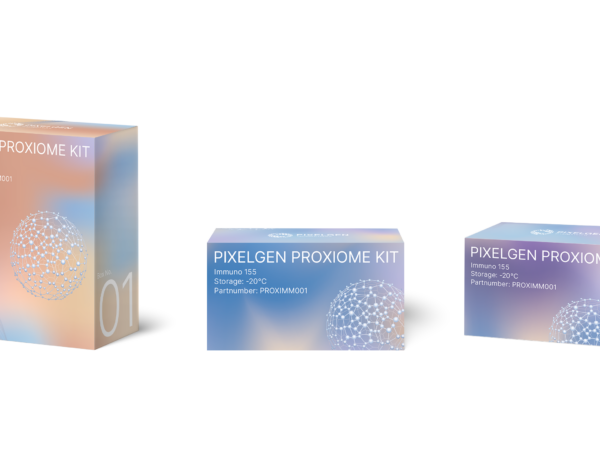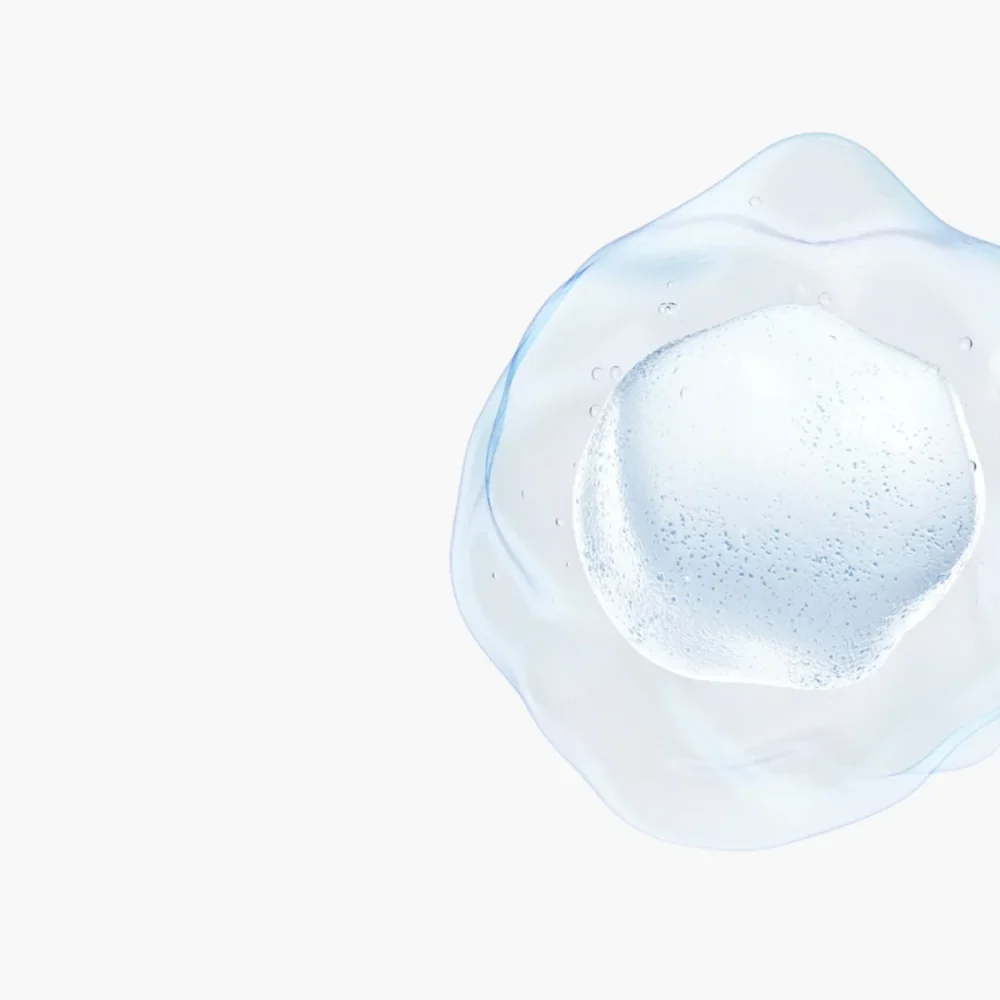
PIXELGEN PROXIOME KIT
ANALYZE THE MOLECULAR BASIS OF CELL FUNCTION THROUGH PROTEIN INTERACTOMICS
The Pixelgen Proxiome Kit, Immuno 155, based on the Proximity Network Assay, delivers cell surface protein interactomics in an unprecedented way. The validated protein panel consists of 155 immune cell surface protein targets and the output is a detailed map of up to 50,000 data points per single cell representing protein clustering, colocalization, and abundance.
Key Features & Benefits
Mapping the protein interactome at scale
The Proximity Network Assay provides new insights into the basis of cellular function by generating nanoscale protein interactomics data analyzing 155 cell surface target markers in parallel.
Unprecedented spatial resolution and throughput
Creating a detailed network of surface protein markers at an approximate resolution of 50nm where the panel proteins are directly connected with all its neighbors.
Functional protein cluster rearrangement analysis
Provides new hypotheses into cellular function at the molecular level by uncovering multi-protein cluster rearrangements for different disease states, drug response and cell activation stages.
Cell to cell interaction quantification
Detects which cells in a cell suspension are interacting to better understand immune system cell communication, activity and trogocytosis.
Leverage Your Existing NGS Workflow
Obtain powerful single cell protein abundance, clustering, and colocalization data with a simple, scalable solution available to any molecular biology laboratory.

About Pixelgen Technologies
Pixelgen Technologies AB is on a mission to deliver biology at the highest resolution by understanding the molecular basis of cellular function with new tools and technologies that decipher the protein interactomics of single cells in unprecedented ways. The company’s patented Proximity Network Assay delivers nanoscale spatial analysis of immune cell proteins at ultra-high capacity and underpins the Pixelgen Proxiome Kit for precision medicine. A foundational technology, the Proximity Network Assay will power a portfolio of products for translational research to accelerate advances in immunology, hematology, and cell therapy. Pixelgen was founded in 2020 by a team of passionate, experienced innovators and entrepreneurs and is venture-backed.
